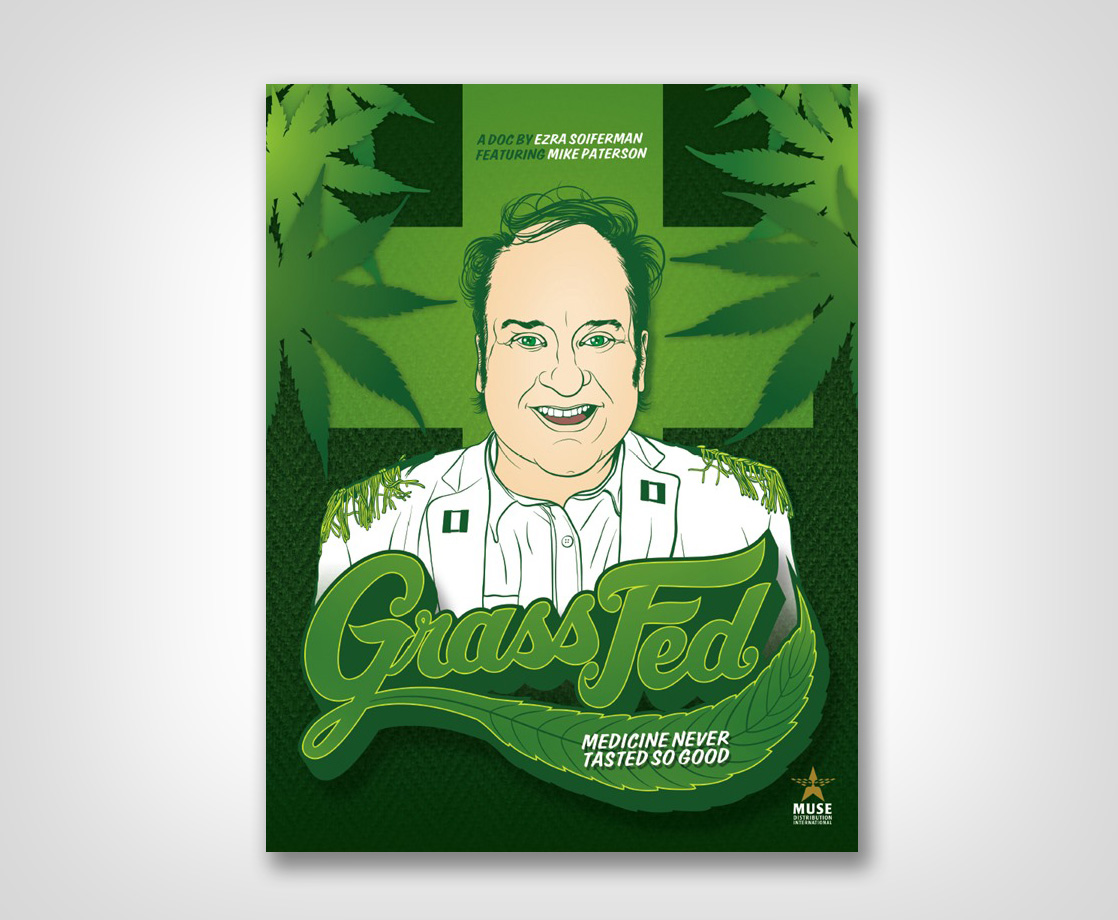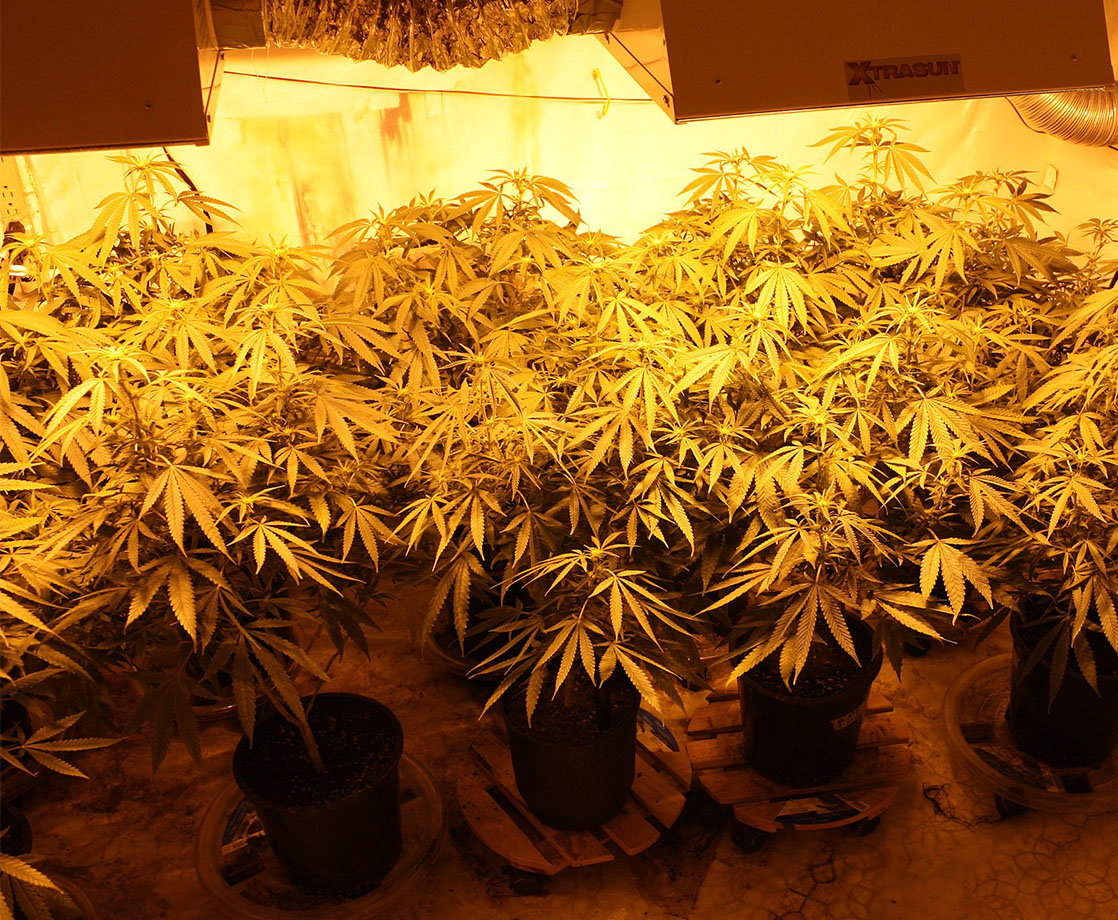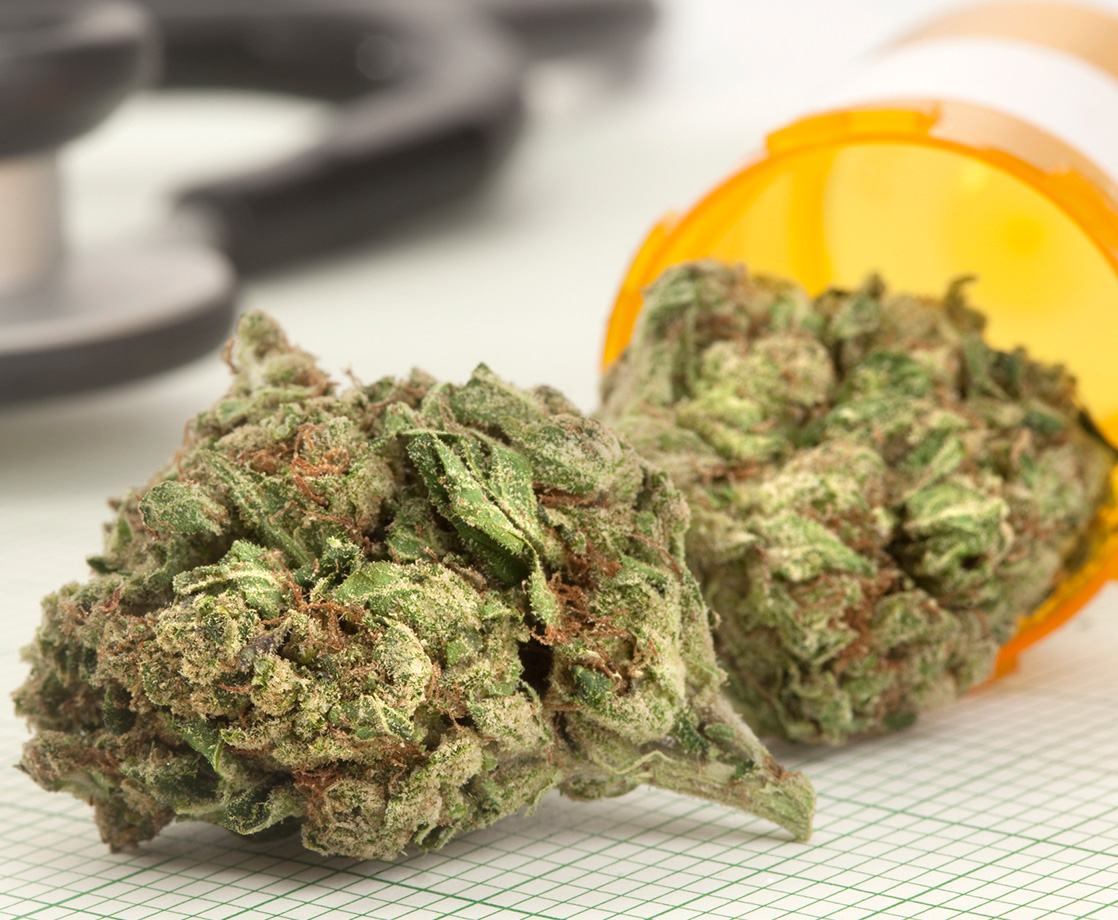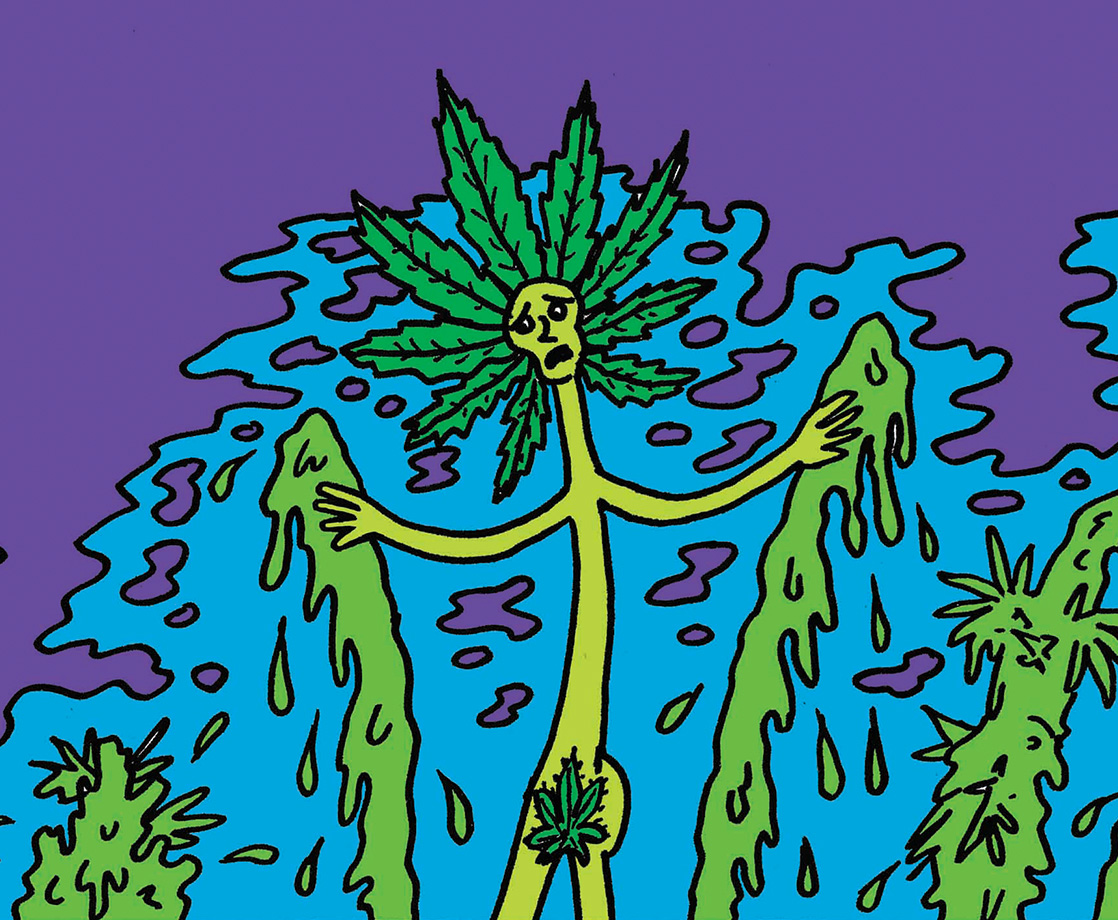When the Montreal-based comedian, actor, and professional wrestler Mike Paterson was desperately dealing with his debilitating sciatica back pain, he decided to take the world along on a journey with him.
Convinced by close friend and filmmaker Ezra Soiferman, and driven by his loving fiancee (now wife) Monika Schmidt and their upcoming wedding, Paterson attempted to heal and improve his physical body with a marijuana and hemp-infused diet supplemented with exercise, vegetarian eating, no alcohol, and a determined mind.
This journey is showcased in both a humorous and serious manner in Soiferman’s documentary Grass Fed, as Soiferman and Paterson travel throughout the vast medical marijuana infrastructure of Canada, California, and Colorado. Paterson’s goal at the start of the documentary was to drop 50 pounds in the four months before his wedding in Mexico, and hoped that with marijuana-infused edibles, less back pain would lead to more activity, and thus, less weight.

Mike Patterson and Dr. Dina
In their travels, Soiferman and Paterson meet with a number of cannabis experts, such as Dr. Dina (Snoop Dogg’s cannabis confidant and the basis for the character Nancy Botwin on the show Weeds), and also visit a number of grow facilities and dispensaries as well. Throughout the film, the viewer is constantly reminded of the serious value of medicinally prescribed cannabis, and despite Paterson’s humor and light-heartedness, it’s abundantly clear that the marijuana-infused diet is a true game-changer.
Though Paterson is a comedian by nature, he takes the strict cannabis and diet regimen quite seriously, and by the end of the documentary, you’ll definitely notice some differences in his lifestyle, as well as the way he looks and feels. After watching Grass Fed, I had the opportunity to talk to Soiferman about his own experience with marijuana, Paterson’s documented journey, and the expansive cannabis industry in both Canada and the United States.
MERRY JANE: What was your experience with cannabis throughout your life?
Ezra Soiferman: When I was studying film at NYU from 1991 to 1994, a close fellow film student named Zed Starkovich, who is actually in Grass Fed, told me about hemp, which I didn’t really know anything about. He started telling me about the wonders of this plant, which also happened to be marijuana, and it really made an impression. Something that was so stigmatized and demonized was also so celebrated and versatile. So I started digging into hemp more and realized people need to look at it much closer. That’s what kicked off my fascination with the cannabis plant.
After that, another friend of mine named Marc Ostrick and I decided to make our NYU thesis film a medical marijuana-themed comedy called Pressure Drop. I started to see these articles in the New York Times about how marijuana was useful for chronic pain, and specifically glaucoma. So I thought instantly of my grandpa, who was dealing with glaucoma at the time, so we based Pressure Drop on my grandfather’s story and these articles on glaucoma. It wasn’t a documentary, but rather fiction film, all about what if a Jewish grandfather would take experimental marijuana treatment for their eyes to save their vision. We did this back in 1993, before medical marijuana had really taken off, but the film was a hit. It played in about 20 film festivals around the world, was awarded at NYU, and opened our careers up to making movies.

Filmaker Ezra Soiferman
MJ: Why were you so keen to recommend treatment to Mike?
ES: I was continually impressed by this plant, if you research it, it’s almost as if there’s nothing that it can’t do. So I had to make a film that would put a person behind this plant, and I chose Mike Paterson as my subject. Mike is a well-known local comedian and actor, one day I bumped into him and I asked him what he knows about edibles, because I was thinking about making a film about them, right away his eyes lit up. He then told me his secret, he said ‘I’ve had sciatica for over nine months or so, and nothing had worked for it. But just the other day my fiancée helped me find a marijuana brownie, and it actually really worked with my pain.’ Then I realized that Paterson was more than the host for the film, but it had to be about him.
MJ: Can you discuss the differences noticed between Canada’s medical system and the ones in California and Colorado?
ES: We’re very lucky in Canada that it’s a federally controlled cannabis system, which means it’s pretty much the same from coast to coast. But in the US, there’s a tapestry of different rules state-by-state, so it’s pretty hard as a patient to take a road trip. In California, it was impossible for Mike to get a card because he wasn’t a resident of the state, so we were in a look-but-no-touch situation. But when we got to Denver, Mike got to try all of these products that aren’t even allowed in Canada, like edibles, topicals, patches.
It was the patches that really blew his mind, because they actually worked and they worked in minutes. He’s still waiting for the patches to come to Canada, they’re not allowed under our current system, but once legalization comes, and it should come supposedly within a year, hopefully we’ll have access to these effective products like patches.

MJ: Where do you see the cannabis industry currently heading?
ES: The way I see it, we are now in the cannabis big bang, the tip of the iceberg has solidly emerged, and the genie is out of the bottle. Activists, advocates, and believers in this supremely versatile plant have started to win the war. From my documentary filmmakers perspective, I’ve witnessed something really incredible with Mike’s story, which is really a microcosm for what I see happening in our society with cannabis.”
The documentary, which was edited by Rosella Tursi and produced by Muse Entertainment, had its TV premiere on the CBC Documentary Channel in Canada in late November 2015, and is currently available on iTunes in both Canada and the United States. Tune in to “Grass Fed” today to see Paterson battle against his back pain and weight with medicinal marijuana.











